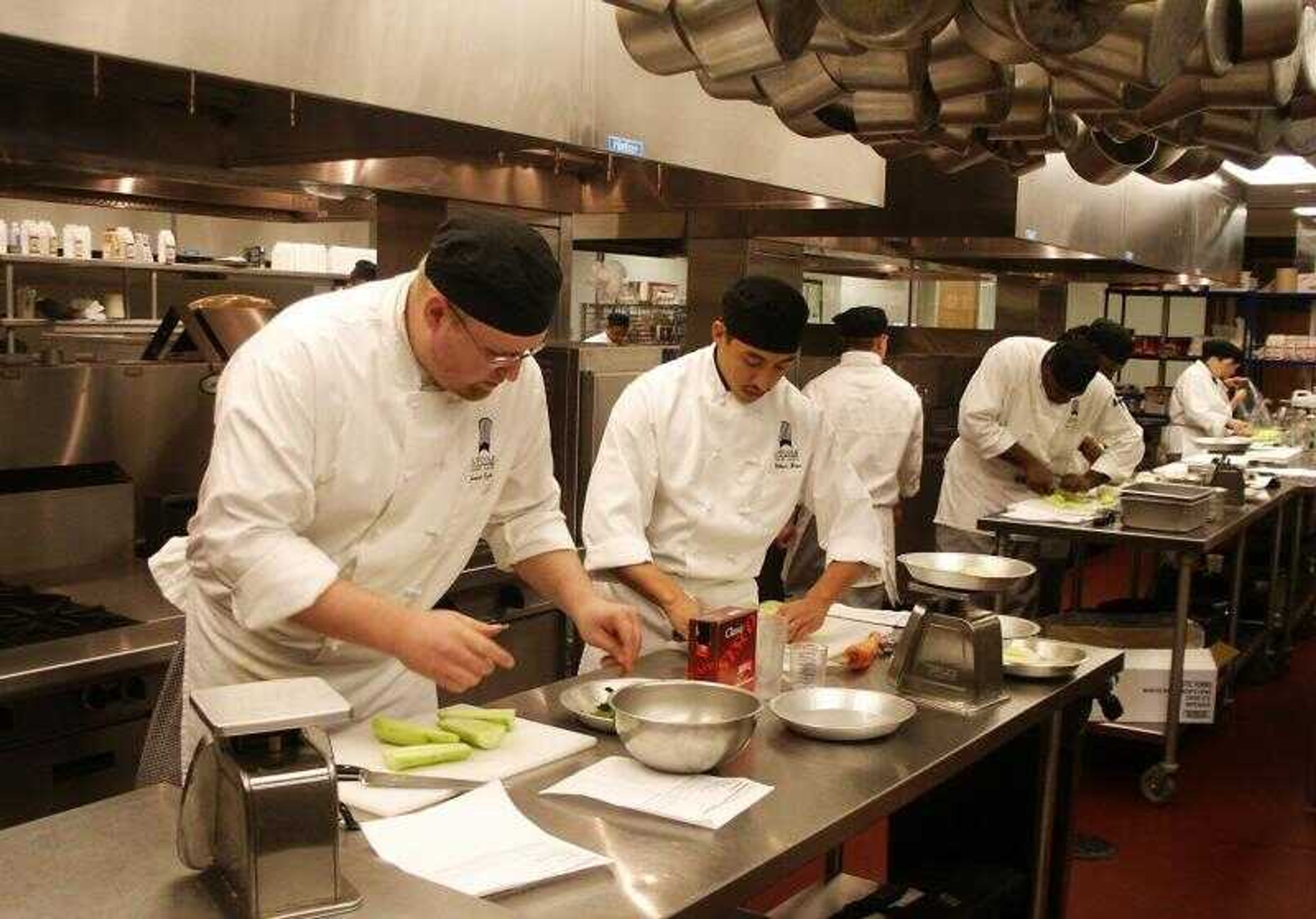These days most children would get into trouble if they brought to school anything that looked like a knife, even a toy one. Yet each day Joseph Dufek, son of Jim and Susie Dufek of Cape Girardeau, goes to class carrying not just one knife, but several big ones. And what's more, so do all his classmates. Still, the teachers and the principal don't mind.
That's because Dufek is enrolled at L'Ecole Culinaire, a cooking school in St. Louis, where knives are as essential to a student's work as paper and pencil. He is studying to become a professional chef.
The 19th-century chef Antonin Careme was among the first to elevate cooking to the status of a profession. He also supposedly invented the chef's hat or toque by inserting a piece of cardboard into his cook's bonnet to make it stand taller. Today the toque has a hundred pleats -- what some say represents how many ways a good chef can prepare eggs.
Dufek is hardly alone in aspiring to someday wear a toque. Today lots of young people want to, and to accommodate them culinary institutions are -- as Lee Klein writing in the Miami New Times puts it -- "spreading across the country faster than well-yeasted dough."
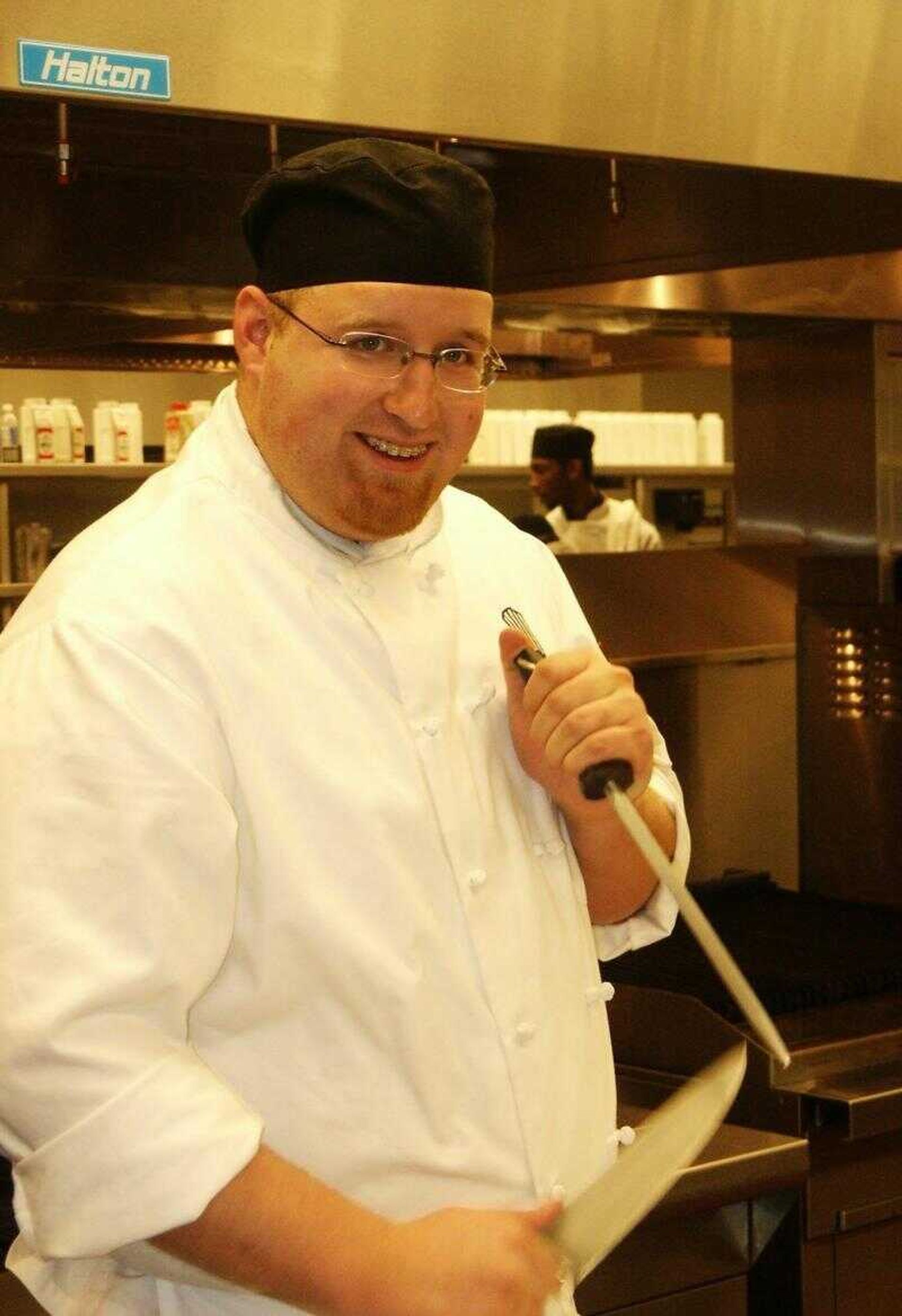
L'Ecole Culinaire, which just celebrated its second anniversary, has seen its enrollment grow from 20 to 400. Moreover, not all culinary students are young. A few are older types who have given up successful careers in other fields to pursue their dream of becoming the next Emeril, which puts them in pretty good company. Emeril, after all, originally wanted to be a musician.
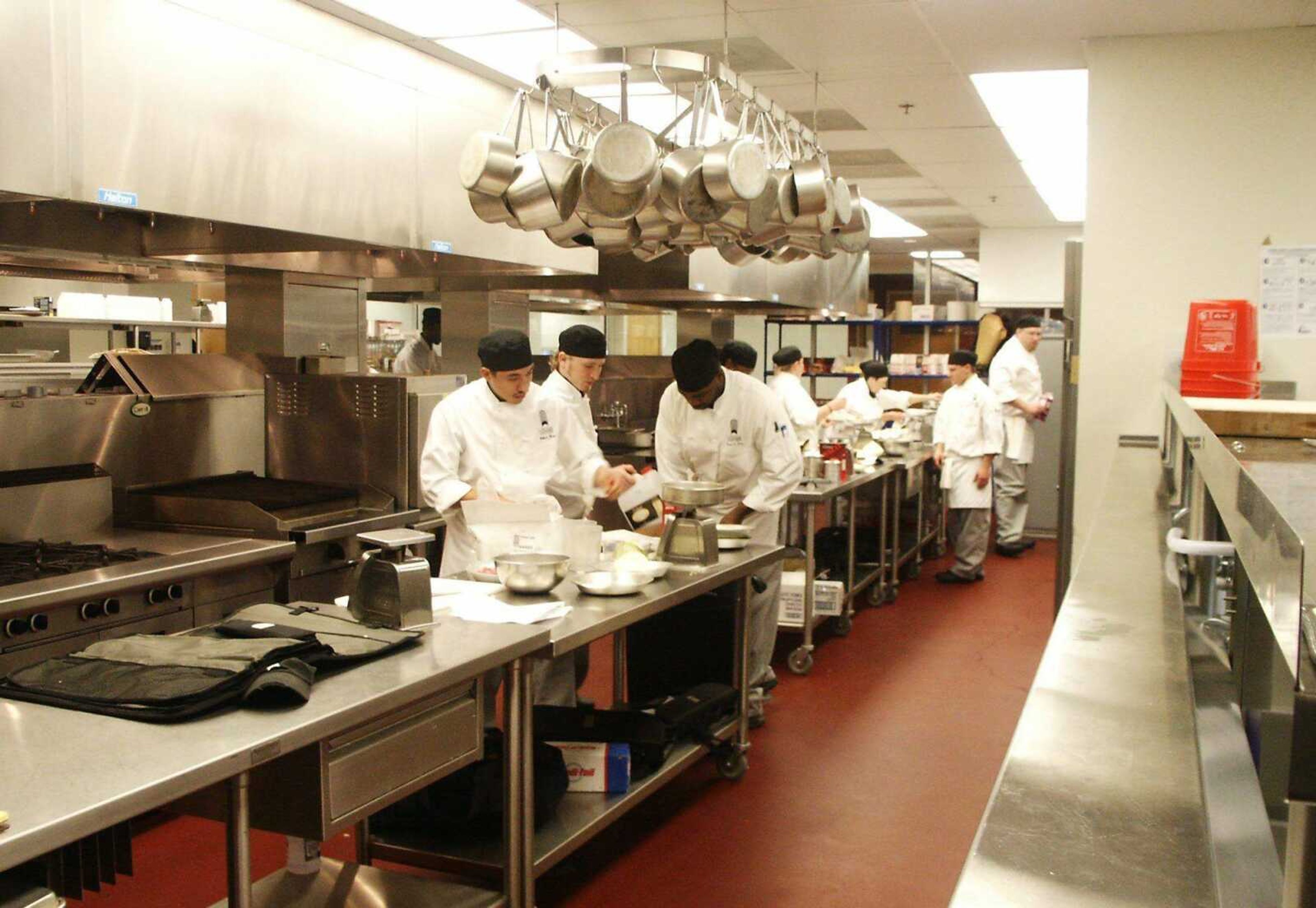
If they make it, a job will be waiting for them. The restaurant business already employs more people than any other private-sector industry, and the Department of Labor predicts that demand will increase by nearly 50 percent over the next 10 years.
Culinary careers are not just confined to restaurants. As Jane McNamee, co-director of L'Ecole Culinaire, notes, the need for chefs is also felt by hotels, cruise lines, country clubs, schools and even nursing homes. As she observes, the baby boomer generation expects more than tapioca pudding for dessert, even in assisted living.
Dufek, a lover of Italian food who started his career as a dishwasher at Bella Italia, will be the first to tell you being a chef isn't always as glamorous as it appears on the Food Network.
You put in long hours (Dufek gets little sleep), do work that is often tedious (he hates to mince), withstand considerable pressure (of the kind that three years ago led Bernard Loiseau, the most famous chef in France, to take his own life after being downgraded two points by Gault-Millau) and enthusiastically prepare dishes you might not even like.
The hardest thing for him, Dufek says, is appetizers -- like me, he has an aversion to small portions.
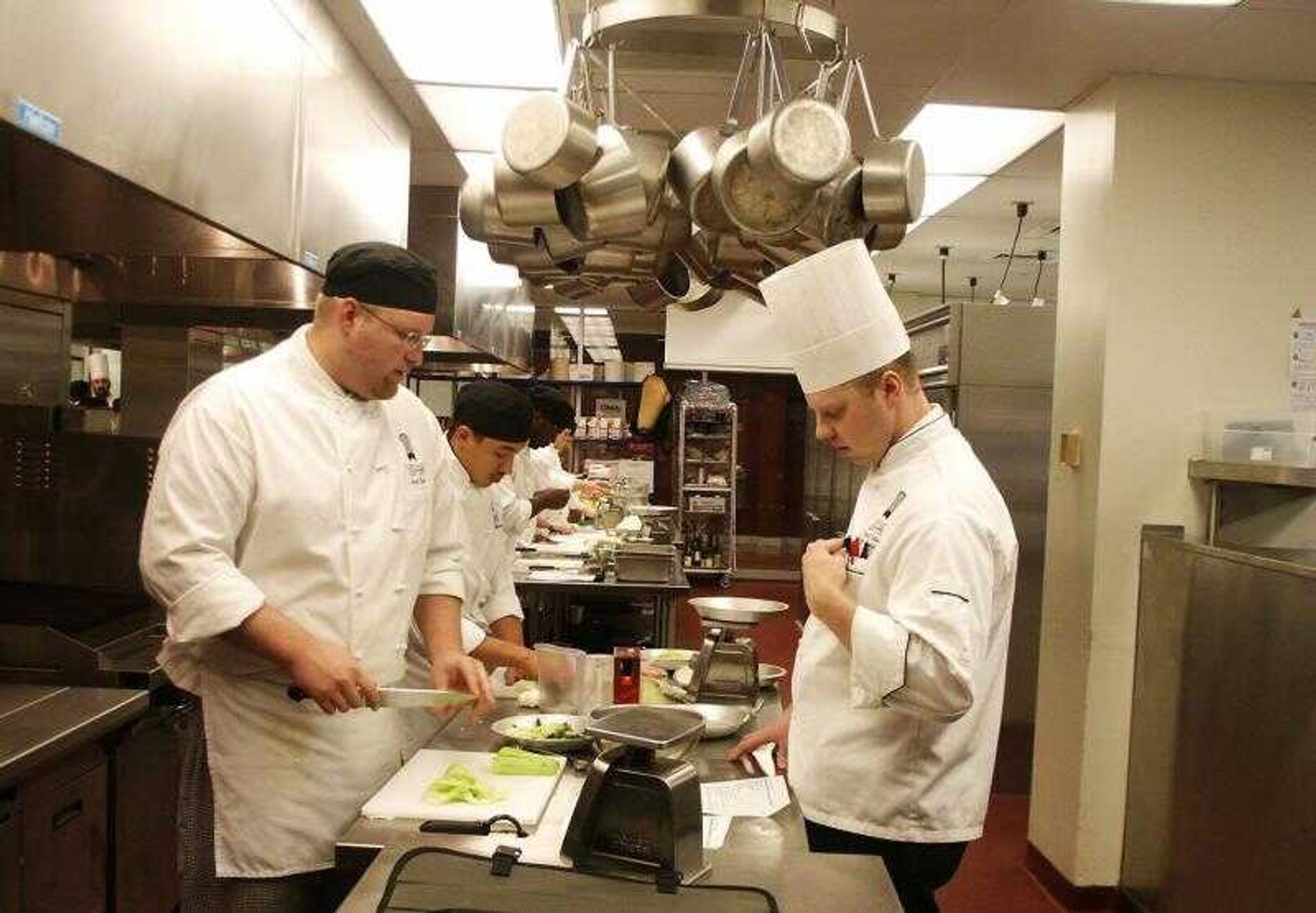
Even so, a more important requirement is love of food, Dufek said.
Most chefs agree. The award-winning Jasper White recommends that culinary schools put cookies in their waiting rooms to test potential students' interest in food.
"If they steal them, you let them in school. If they don't steal them, then you don't take them," White said.
There's a test I'd pass with flying colors.
Kicked Up Chef's Salad
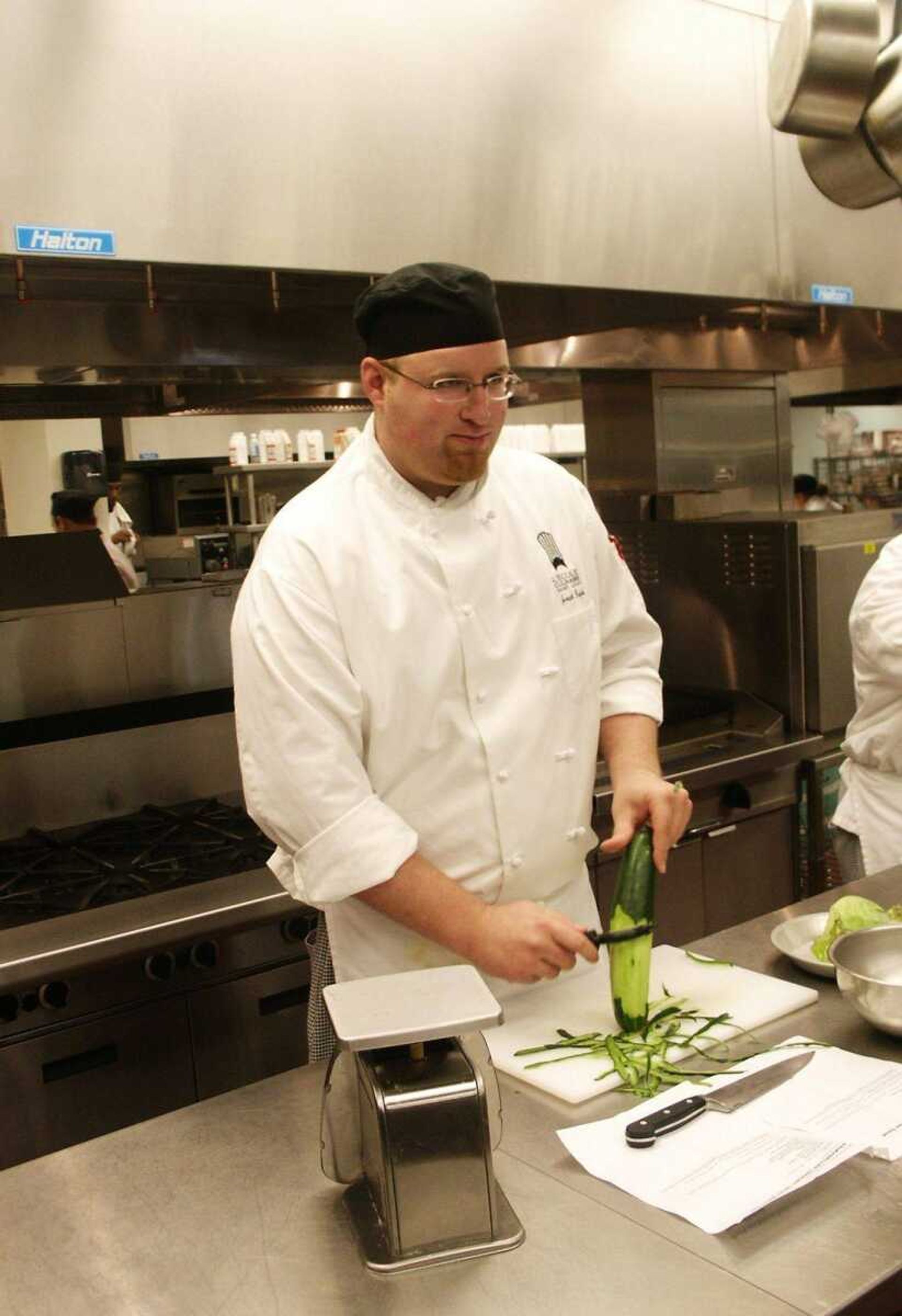
Most budding chefs would be happy to achieve the success of Emeril Lagasse, who doubtless inspired many of them to go into the profession in the first place. Naturally, his chef's salad recipe, adapted from the Food Network Web site, calls for kicking things up a notch.
1/4 cup finely sliced shallot rings
2 tablespoons white wine vinegar
2 tablespoons cream
2 teaspoons Dijon mustard
6 tablespoons olive oil
1 head Bibb lettuce
3 cups red leaf lettuce
2 plum tomatoes
1 Belgian endive
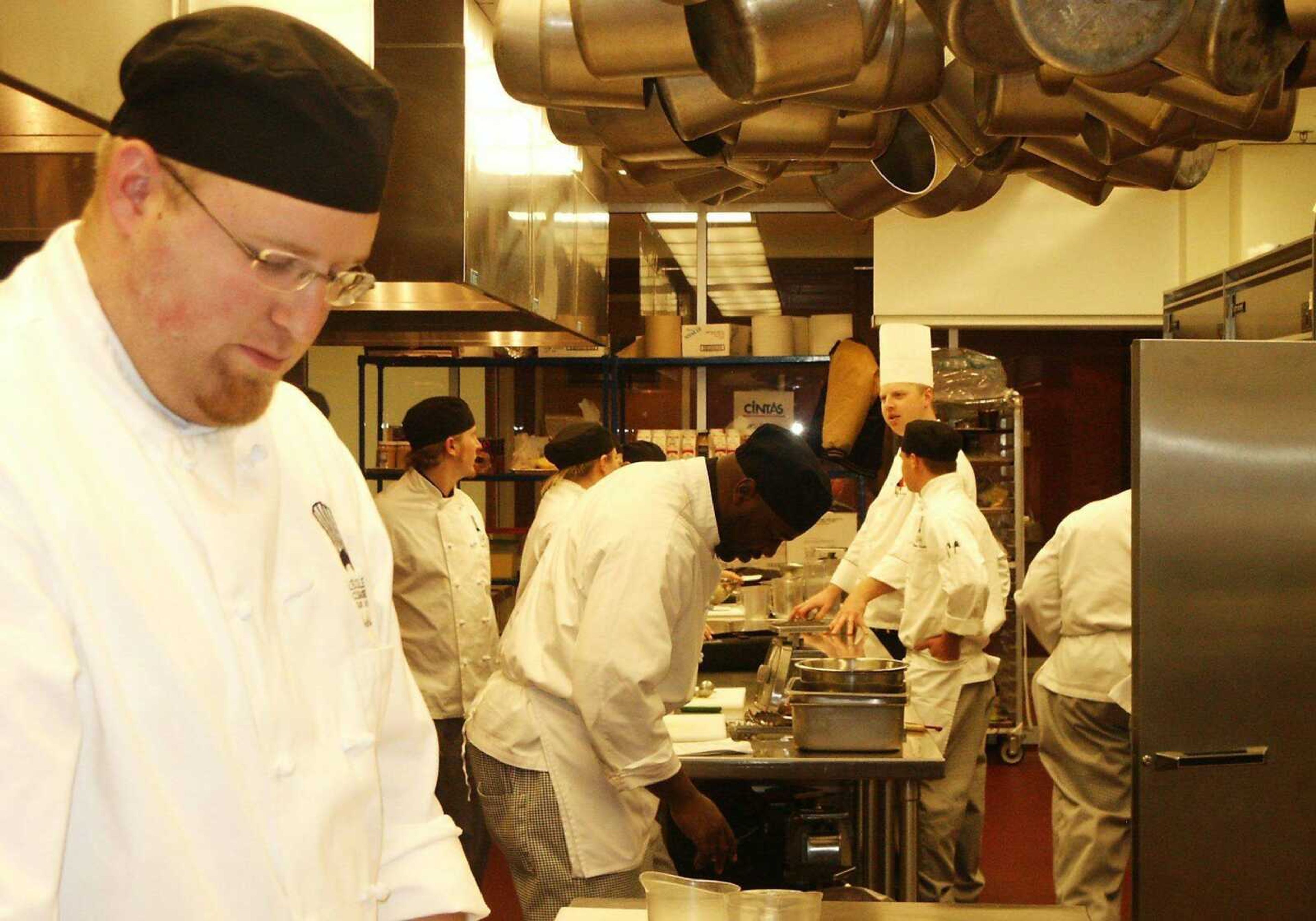
1/3 pound Gruyere cheese
1/3 pound cooked ham
1/4 pound turkey breast
2 hard boiled eggs
Combine shallots and vinegar and let stand for ten minutes. Whisk in cream and mustard. Add oil in a steady stream, whisking until emulsified. Season with salt and pepper. Separate Bibb lettuce leaves, wash, dry and place on four plates. Wash and dry leaf lettuce, dice tomatoes, cut endive, cheese, ham and turkey into strips, and toss with dressing. Center salad mixture on plates. Peel and slice eggs, arranging around edge.
Listen to A Harte Appetite Fridays at 8:49 a.m. on KRCU, 90.9 on your FM dial. Write A Harte Appetite, c/o the Southeast Missourian, P.O. Box 699, Cape Girardeau, Mo., 63702-0699 or by e-mail to tharte@semissourian.com.
Connect with the Southeast Missourian Newsroom:
For corrections to this story or other insights for the editor, click here. To submit a letter to the editor, click here. To learn about the Southeast Missourian’s AI Policy, click here.

